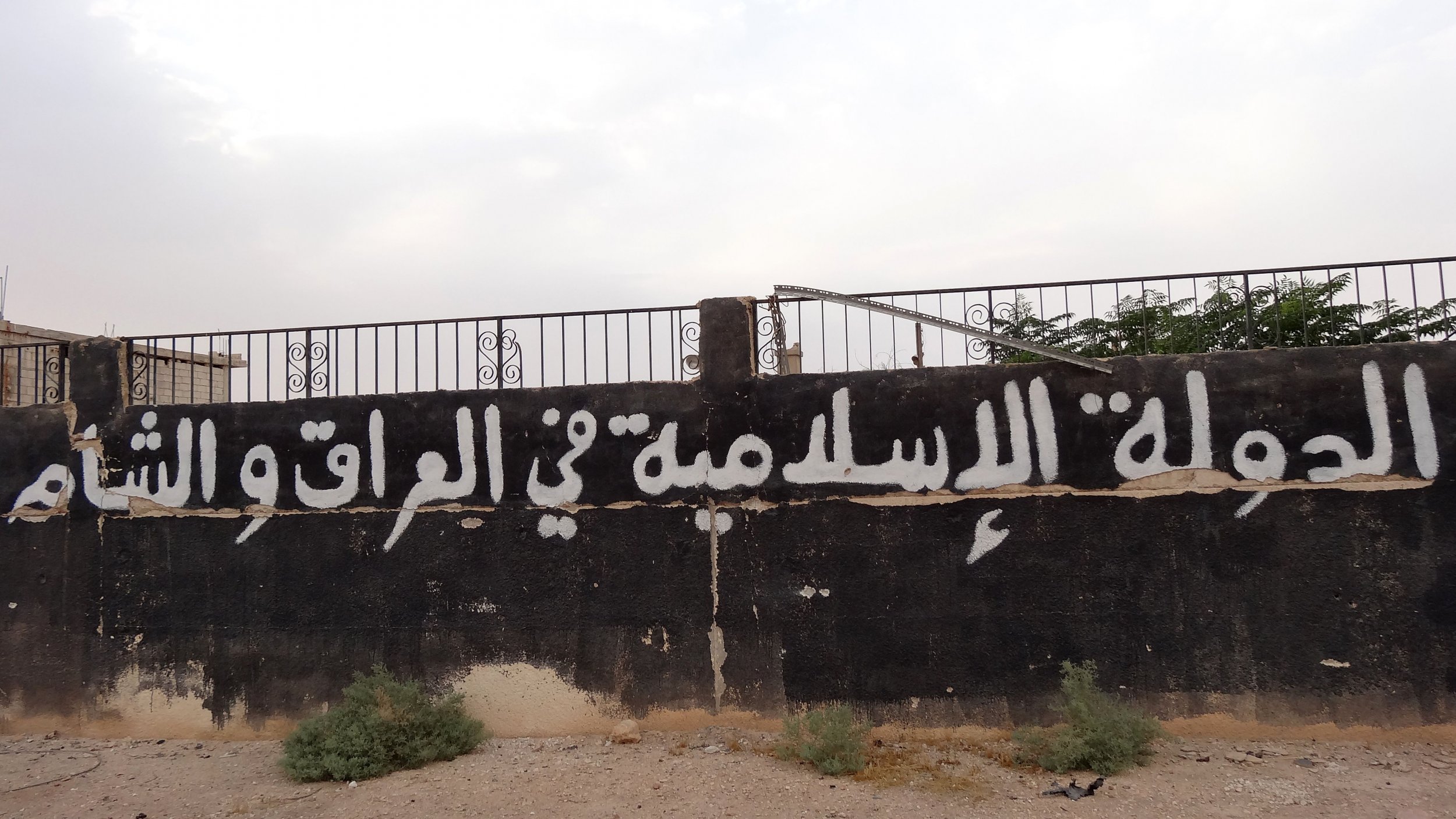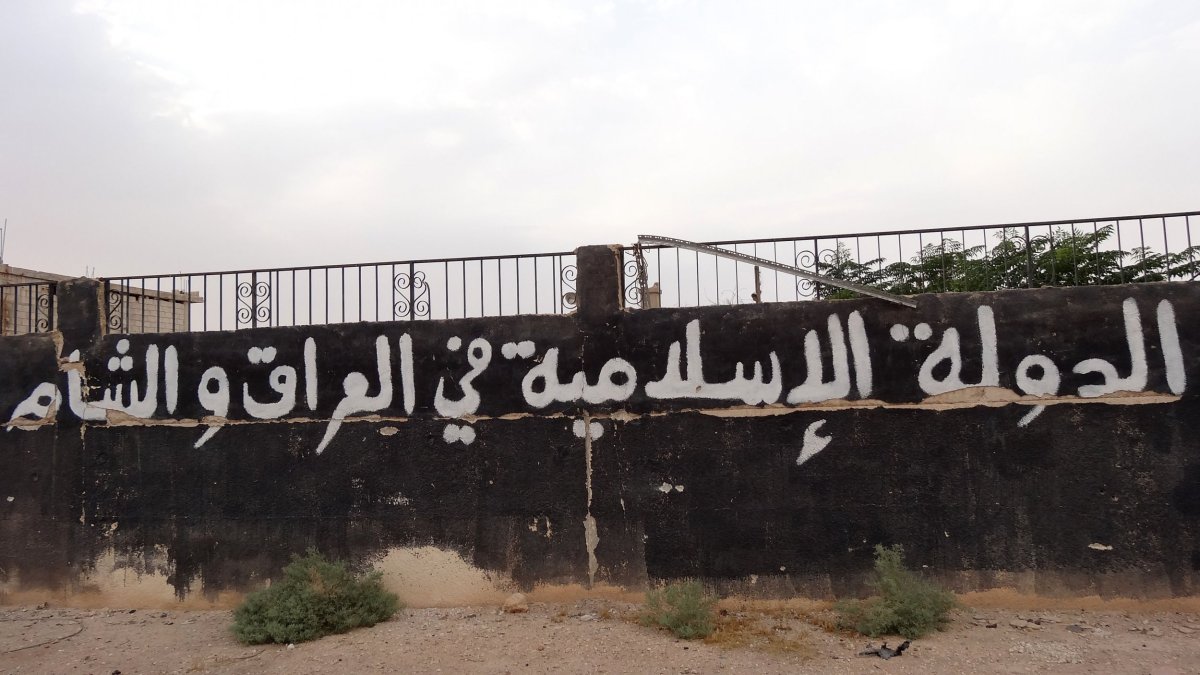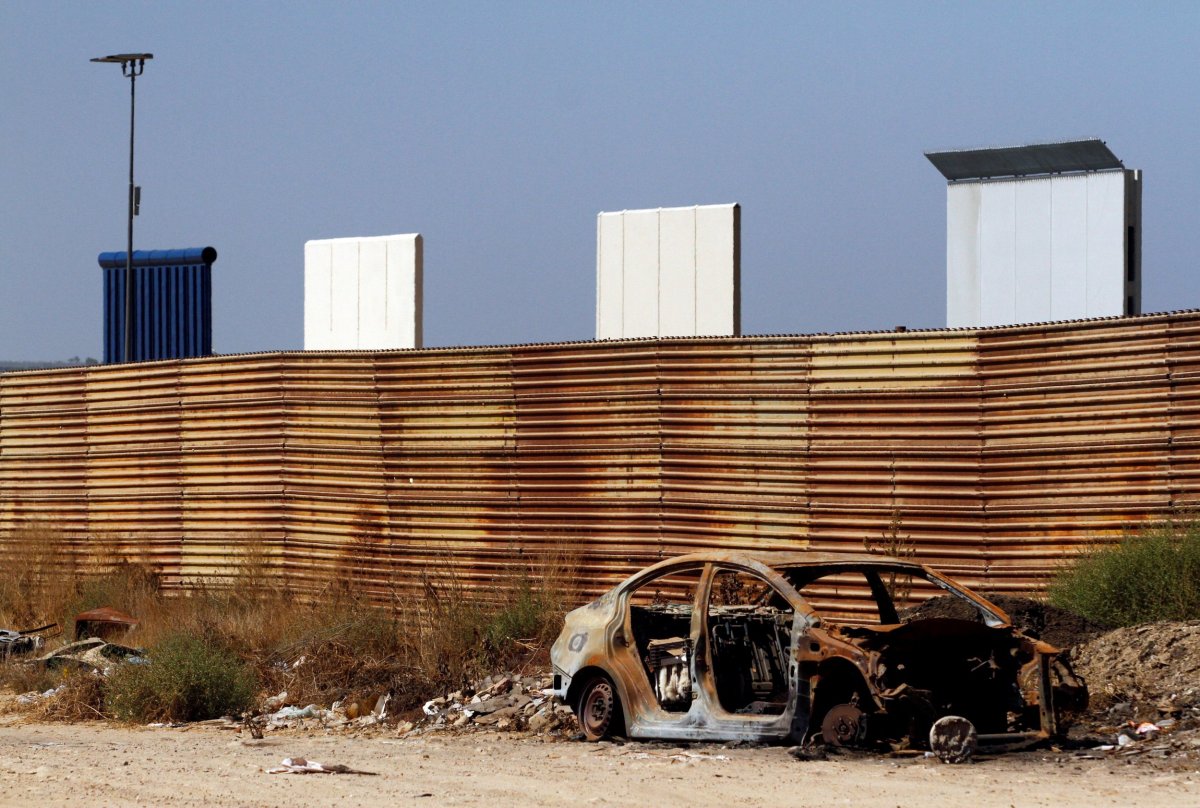
Authorities have raided the Paris offices of French-Swiss construction company LafargeHolcim—a candidate to help President Donald Trump fulfill his campaign promise to build a wall along the U.S.-Mexico border—over allegations that the company bribed the Islamic State militant group (ISIS) to protect the firm's assets in Syria.
The company, formed in a 2015 merger of the cement companies LaFarge and Holcim, first announced its bid to build the border wall in March. A month later, an internal company inquiry confirmed what French authorities had known for more than a year: that a Lafarge executive had allegedly paid off jihadis not to attack its plant in the northeastern Syrian city of Jalabiya in 2013 and 2014. Since the case first broke last year, French judges have sought evidence to indict the company for "financing a terrorist network."
Related: European company paid ISIS to stay away from Syria plant, report says
"LafargeHolcim confirms that the French police visited our premises in Paris. LafargeHolcim is fully cooperating with the authorities, but cannot comment further as this is an ongoing investigation," a company spokesperson said Tuesday, according to Reuters.

In a separate article, Reuters reported Tuesday that authorities had also entered the premises of Belgian holding company GBL, which owns a 9.4 percent stake in LafargeHolcim. Investigators are attempting to determine details about the alleged covert arrangement and to what extent Lafarge's Syrian workers were put at risk by the company maintaining operations as the war raged on around the plant.
The scandal was first uncovered last year by French daily Le Monde, which has published details of the investigation. The newspaper reported that, between 2013 and 2014, Lafarge had paid up to $100,000 a month to various militant groups battling around the site so that the factory could keep producing cement.
A deal to provide ISIS with $24,000 a month reportedly began June 29, 2014, just days before ISIS chief Abu Bakr al-Baghdadi would make his first and only known public appearance, at the Grand al-Nuri mosque in Mosul, Iraq, to summon Muslims around the world to his self-proclaimed caliphate in Iraq and Syria. The agreement held until the factory was evacuated in September 2014. ISIS then took the site and held it until being removed by the U.S.-backed, mostly Kurdish Syrian Democratic Forces.
The allegations led to lawsuits by the European Center for Constitutional and Human Rights, the French anti-corruption group Sherpa and former Syrian Lafarge employees. LafargeHolcim's internal investigation confirmed the links in April, one month after CEO Erik Olsen said Trump's border wall was "an infrastructure project where we would participate." Olsen ultimately stepped down in July.

Trump's plan to build a wall along the U.S.'s southern border, intended to stem illegal immigration from Mexico, was one of the Republican candidate's most consistent rallying cries on the campaign trail. He has moved forward with the idea, despite Mexico refusing to pay for it, as Trump promised voters, and no clear estimations established for the cost, time and scope of the huge undertaking.
Lafarge's alleged support for militants in Syria wouldn't be the first time the group, one of the largest construction companies in the world, has found itself involved in controversial projects, according to France 24. The company reportedly participated in the construction of a massive coastal wall of bunkers known as the "Atlantic Wall" for the Nazis in 1942, a collaboration that gave Lafarge a distinct advantage over its peers for decades to come.
Uncommon Knowledge
Newsweek is committed to challenging conventional wisdom and finding connections in the search for common ground.
Newsweek is committed to challenging conventional wisdom and finding connections in the search for common ground.
About the writer
Based in his hometown of Staten Island, New York City, Tom O'Connor is an award-winning Senior Writer of Foreign Policy ... Read more
To read how Newsweek uses AI as a newsroom tool, Click here.








